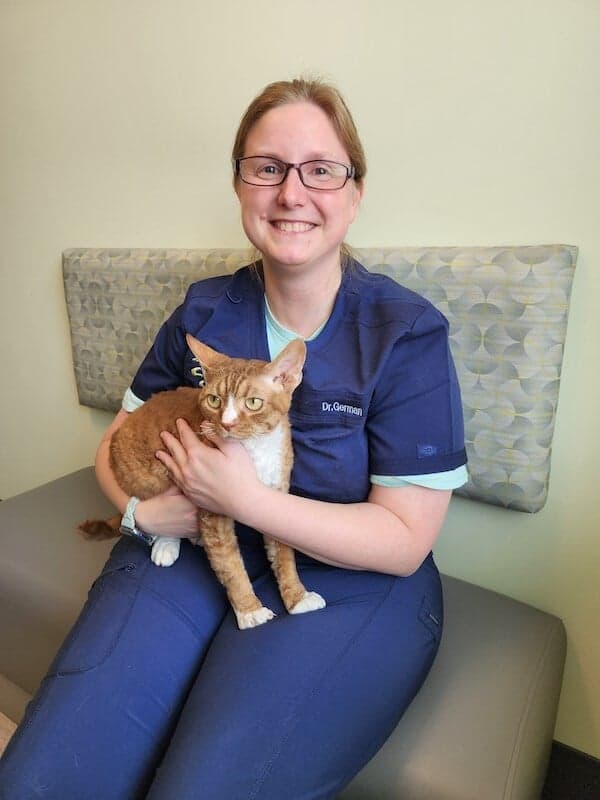A Discussion on Cat Heartworm Disease with Veterinarians
Prevention and Treatment of Heartworm in Cats
Heartworm disease in cats is a potentially devastating disease that can wreak havoc on your cat's respiratory system. In the veterinary community, we ascribe to the adage, “An ounce of prevention is worth a pound of cure” - especially because, in this case, there is no true cure for heartworm in cats!
Contact a local veterinarian to see what options exist for preventing heartworm disease in your cats, as this parasitic disease is present throughout the whole of the United States and other areas around the world.
What Is Heartworm in Cats?
You’re likely asking yourself, “How are cat heartworms transmitted?” You might be surprised to learn that mosquitoes are the root cause. This parasitic disease can affect both the heart and lungs of your cat. When a mosquito bites an animal that has been infected with heartworms, it picks up larvae from the animal's bloodstream and transfers them to the animal that it later bites. It's not a cat-to-cat contagious disease; rather, your cat has to be bitten by an infected mosquito that has already fed off of an infected animal.
The heartworm larvae develop in the cat's body as they go through multiple life stages. The adult heartworm often lives in the heart, but it can wind up in the lungs or pulmonary arteries of the cat that has been bitten. In addition to causing severe respiratory disease, heartworms can result in death, so speak to your veterinarian about preventative options.
Symptoms of Cat Heartworm
It is often very difficult to diagnose heartworm disease in cats. Your cat's symptoms can range from issues like gastrointestinal signs such as vomiting and diarrhea to respiratory signs. Those affected commonly exhibit systems of cat heartworm such as coughing, which can present itself similar to asthma.
Diagnosing Heartworm Disease in Cats
Because heartworm disease in cats can look like so many other diseases, diagnosing heartworm for cats can be somewhat challenging. Your veterinarian may have to run a series of different diagnostic tests to determine if your cat is affected with heartworm disease. To determine if heart disease is present, your veterinarian may take chest radiographs (X-rays) as well as run blood work, including a feline heartworm test. Unfortunately, many of the blood tests don't yield as much information in cats as they do in dogs and aren't as diagnostic. In some cases, your veterinarian actually has to visualize the heartworm within the pulmonary vessel by performing an echocardiogram or ultrasound of the heart and surrounding vessels.
Treatment of Heartworm in Cats
After running multiple diagnostic tests to get a diagnosis of heartworm disease in your cat, your veterinarian, unfortunately, has limited treatment options available. Unlike in dogs - where the heartworms can be killed - veterinarians do not have a true treatment option for cats. Instead, veterinarians treat cats symptomatically, using medications such as short-term courses of prednisone to treat the inflammation within the lungs that occurs in most cases of heartworm disease in cats.
Because there is no real treatment for heartworm disease in cats, the prognosis can be guarded. Some cats do well living with this form of chronic lung disease, while it may cause death in other cases. Sometimes the disease will resolve itself if your cat is kept on supportive care long enough for its body to clear the infection.
Preventing Heartworm Disease in Cats
The best way to approach this issue is with heartworm prevention for cats. There are monthly preventative medications just like with dogs, which help prevent heartworm disease from occurring. It does this by killing the larval stage of the heartworm within the bloodstream before it can become an adult heartworm. It is very preventable in cats, and your veterinarian can recommend and prescribe a product that is appropriate for your beloved pet. This recommendation for prevention will be based upon your cat's lifestyle and the area where you live, but most cats within the United States are at risk for heartworm disease and should be on a preventative medication.
Reach out to a veterinarian near you to find out how to best prevent heartworm disease in your favorite furry feline. If you don't have one yet, we can help you find a local veterinarian!
The Following Veterinarians
Contributed To The Cat Heartworm Information On This Page


The Ultimate Guide
to Cat Care
This free guide is an indispensable manual for cat ownership. Filled with veterinary advice and recommendations on every important topic at each stage of your cat's life, this is all the stuff that responsible cat owners need to know. That is why we are making it free!


